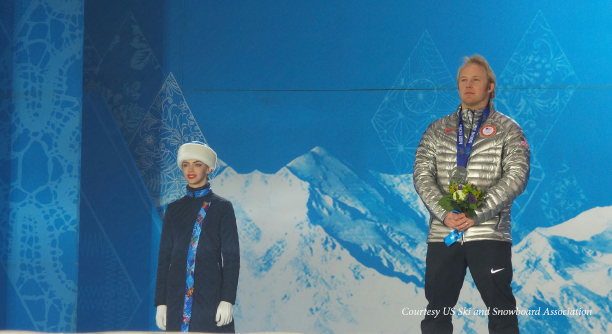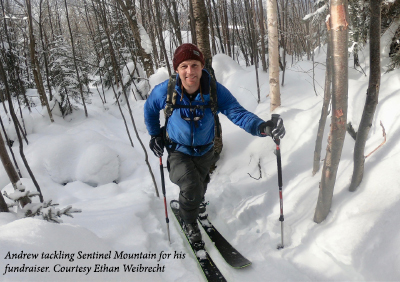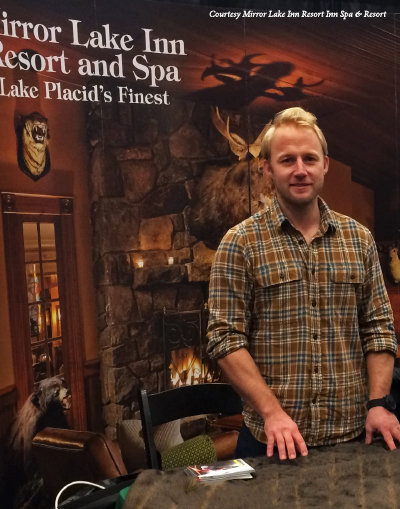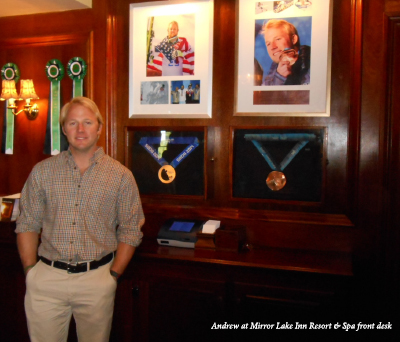
MY NEW YORK STORY
Andrew Weibrecht, A Champion On And Off The Slopes
Even if you’re not a skiing fan or even a follower of skiing competitions, his name is forever inscribed as a two-time Olympic medalist. In 2019 he was inducted into the U.S. Skiing Hall of Fame and Museum. He’ll always be regarded, too, as the humblest on and off the slopes. With his quiet confidence, you’ll never find Weibrecht basking in his celebrity. Instead, Weibrecht’s got something special about him. He’s cool and calm then and now.
When Weibrecht initially made the U.S. Ski Team, he was nicknamed “Warhorse” for the manner in which he charged World Cup courses with high intensity. He solidified the epithet in 2007, coming in 10th place at the famed Birds of Prey Downhill—one of the gnarliest downhill tracks on the World Cup circuit.
A little-known fact about Weibrecht: In January 2015, he took time out of his hectic schedule to visit Paul Newman’s Double H Ranch SeriousFun for the annual ski and snowboard program with 230 young, seriously ill campers. The program, with its volunteers, blew Weibrecht away. The champion spoke to the campers about overcoming their fears and achieving success with a never-give-up message during his visit. “It’s an incredible organization for kids.” He continues to spread this message wherever he goes to this day.
Today, Weibrecht’s involved in fundraising efforts for the Make-A-Wish Foundation. He is skiing all 46 Adirondack peaks. Last year he achieved about half of the goal and will finish the mission this winter. He proudly sits on the board of the Make-A-Wish Northeastern NY chapter.
We met up with Weibrecht recently and learned more about the three-time Olympian and what he’s been up to since retiring almost four years ago.

Describe how you learned to ski and when did you discover you loved it.
I started skiing at two years old. My parents are both avid skiers, and my father originally came to Lake Placid as a ski instructor on the weekends from downstate New York. As was the tradition in my family, as soon as my siblings and I started walking, mom and dad had us skiing. When I was five, I joined the New York State Ski Education kids race program, and that’s where my love for skiing grew. Some of my fondest memories from being a kid are skiing with my friends and family at Whiteface Mountain.
Are there any special memories you have of skiing as a young boy?
There are so many great specific memories. However, for me, it was always about spending time with my friends and family out at the mountain. I remember being dropped off at Whiteface as a kid, our parents would go and do their own thing, and then we had the freedom to cut loose with our friends. It was terrific, and as a young child, it felt like entering a whole new world where we had free license to explore and express ourselves.
Growing up in Lake Placid must have been a wonderful experience. What were your first experiences skiing at Whiteface?
My first skiing experiences were always with my family. I have two older sisters, an older brother, and a younger brother, and for a couple of years, we were all figuring it out and learning to ski together. Eventually, as we graduated from beginner terrain, family ski days were where we spent most of our time together during the winter.
How did growing up in Lake Placid shape you as an individual?Lake Placid was a fantastic place to grow up, especially as an athlete. There is an ever-present support system in the community that encourages kids to pursue athletics at whatever level. Couple this with the legacy of the Olympics, and it is an extraordinary place.

Training and competing certainly opened the world for you. What did you learn in your journeys to foreign lands for 16 years?
I learned not to eat sushi when staying high in the Andes. Beyond that, it was a constant learning experience as I navigated the trials and tribulations that go along with travel; constantly changing cultures, language barriers, and the overarching challenge of feeling a sense of normalcy through the entire process. Over the years, I eventually understood that even if you are in a foreign land, that doesn’t mean you have to be an outsider.
After garnering Olympic medals in 2010 (Whistler/Vancouver) and 2014 (Sochi), what prompted you to retire in 2018 in Pyeongchang, South Korea?
My body was beginning to give me trouble, and my second daughter was due to be born that June. When the girls came, it changed my calculus regarding travel, training, and priorities. Ultimately, I had a much greater desire to be with them and see them grow than I did to keep ski racing.
With your ski career in the rearview mirror, what has the transition been like collaborating with your parents at Mirror Lake Inn Resort Spa?
I have enjoyed my transition from athletics into life beyond. The initial few weeks were somewhat jolting, as the sense of identity (athlete) I carried for so many years was immediately stripped away. However, this feeling passed quickly for me, especially once I discovered a whole set of challenges outside of athletics, I could put my mind towards. Learning the hotel business and applying many of the skills I gained as an athlete has been very rewarding and ultimately no less challenging than racing down mountains.
Do you still stay involved in skiing?
I still maintain a summer ski camp at Mount Hood with my ex-teammate, Ted Ligety (Ligety Weibrecht Ski Camps). Additionally, I do some clinics, ski with Mirror Lake Inn guests, and sit on several U.S. Ski and Snowboard and U.S. Olympic Team sports committees. In my free time, I love skiing with my kids.
Now that you’ve retired as a professional skier, do you ever get to ski without feeling like you’re in training? In other words, once on the slopes, can you relax and enjoy the sport?
I do relax and enjoy the sport still. I love skiing with my kids; it’s a joy to pass a lifelong passion of mine onto them. I also do a lot of backcountry ski touring now, which has allowed me to experience the sport I love in a different context, keeping things fresh and fun.





